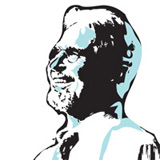Dick and Mickey Flacks: Two Lifetimes on the Left
Santa Barbara's Pioneering Progressive Couple Pens Memoir
In 1948, in the Bronx, 8-year-old Mickey Hartman delivered leaflets door-to-door in the co-op apartment complex built by the communist party where she lived with her trade union family.
In Brooklyn, meanwhile, the FBI opened a file on 10-year-old Dick Flacks because his teacher parents helped lead labor and civil-rights campaigns in the public schools.

Neither kid knew it at the time, but those childhood experiences marked the start of a remarkable, lifelong partnership.
These “Red Diaper Babies” soon met as counselors at a progressive summer camp, fell in love, and eloped in 1959. Over the next 56 years, their enduring marriage was shaped and sustained by nonviolent struggles for social justice, as together they opposed McCarthyism, nuclear proliferation, the Vietnam War, and the tyranny of the FBI, while fighting for peace, civil rights, gender equality, and grassroots community power in their adopted hometown.
Now in their seventies, Dick and Mickey Flacks are hunkered down in their comfortable Eastside home, in the final stages of crafting a dual memoir of intrepid, frontline lives on the left. Parents of two long-grown children (“While people were making revolution, I was making babies,” she recalls of the late ’60s), they’ve shared a personal and political odyssey, carrying them from New York to the Midwest and Santa Barbara, and social crusades ranging from the 1962 founding of SDS to the 2002 creation of SBCAN.
“We come from left-wing families that go back more than a hundred years,” said Dick, UCSB emeritus professor of sociology, who’s researched and written previous volumes on left-wing activism. “Rather than figuring it all out together, we decided we would each write separately.”
“The theme is the interplay between politics and the personal,” said Mickey, a retired university biology researcher, a leader of the secular Jewish community, and a prominent Democratic activist. “We’re writing [recollections] side-by-side … There’s some Rashomon to it.”
ONE DAY IN MAY: On Monday, May 5, 1969, an unusually warm spring day, University of Chicago Professor Dick Flacks welcomed into his office a man identifying himself as a reporter for the St. Louis Globe. He’d asked to interview Flacks about the social and political upheavals unsettling the city and the nation.
Flacks took a quick call as the purported reporter set an old-style tape recorder on the desk. Hanging up, Dick later remembered, he saw the bulky recorder fall to the floor and bent over to help retrieve it.
Then he was battered.
The next thing he recalls, emergency room doctors were scrambling to treat him for a severe beating, with what appeared to have been an axe, leaving his skull smashed and his right hand nearly severed.
“Somebody tried to kill me,” he calmly remembers today. “Clearly there was some political motive.”
Mickey was working at the biology lab, kids home with a new babysitter, when she got the call.
“All they said was, ‘He’s been hurt; he’s been brought in,’” she recalls.
Police investigation of the mysterious attempted murder proved fruitless. Mickey suggests that right-wing vigilantes “probably hired a hit man.”
The crime was never solved, but it marked a key inflection point in their lives.
A string of portentous events in Chicago had shaken the family world during this turbulent time — stink bombs, surveillance, informants — and the attack convinced them to accept UCSB’s offer of a tenured professorship for Dick, a decision on which they’d wavered for months.
“How can we come to this backwater resort?” Dick recalls thinking when first recruited.
“It felt like we were retiring,” adds Mickey.
As if.
FUN IN THE SUN: When Dick retired in 2006, Nick Welsh wrote of the couple’s 1969 arrival in Santa Barbara (The Santa Barbara Independent, May 11, 2006):
“Flacks hoped a sunny campus by the Pacific would offer the quiet he needed,” the piece said. “How wrong could one man be?
“He arrived with his family just months after the historic Santa Barbara oil spill and just months before the burning of the Bank of America in Isla Vista.”
Amid that historic turmoil, and decades of local political clashes to follow, the two remained devoted to each other and to progressive, “think global, act local” principles, key figures in dozens of grassroots campaigns.
“We never wanted our lives to revolve around that incident,” said Mickey, referring to the 1969 attack on her husband.
The record will show that they did not. The full story awaits the book.



